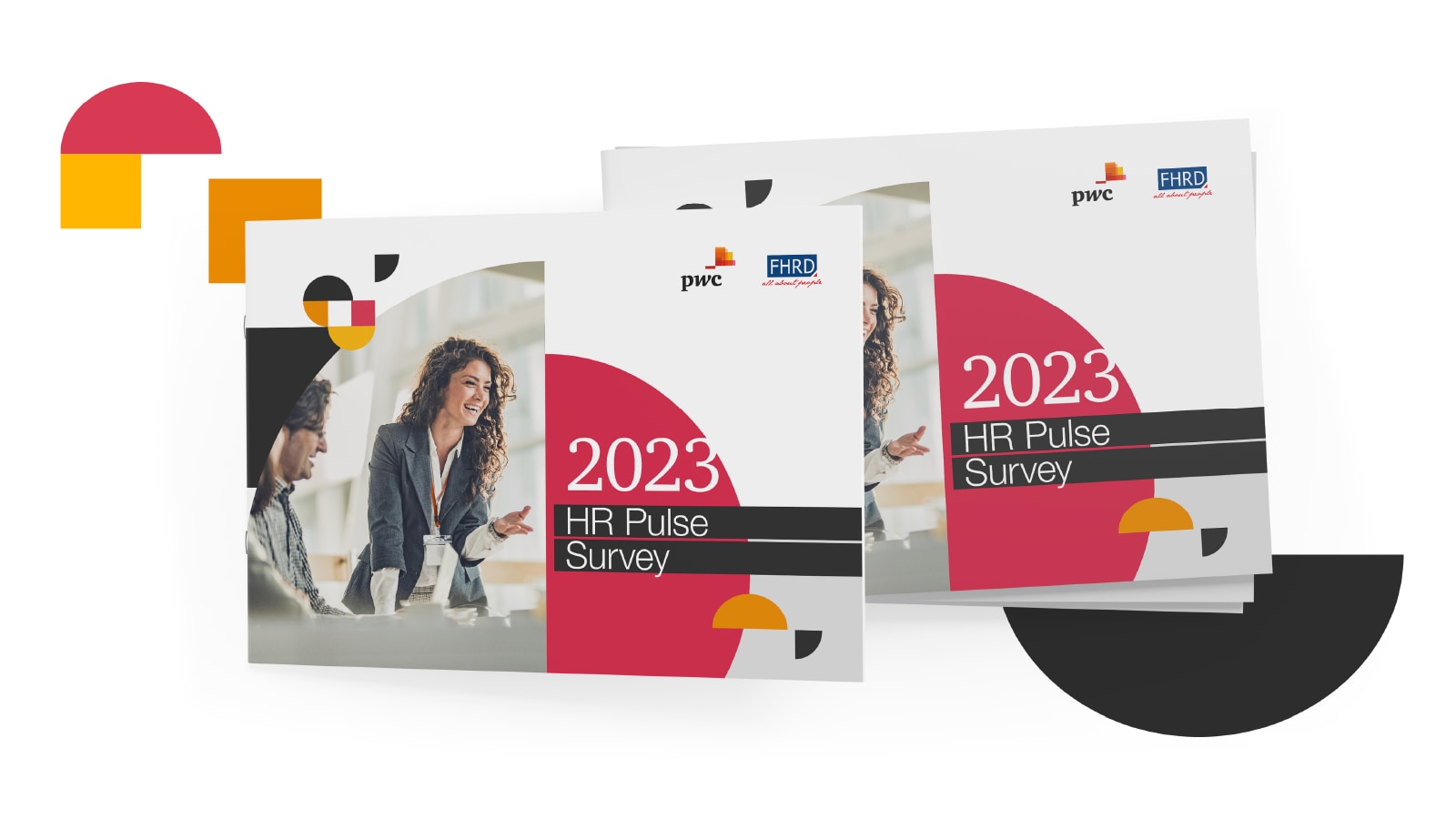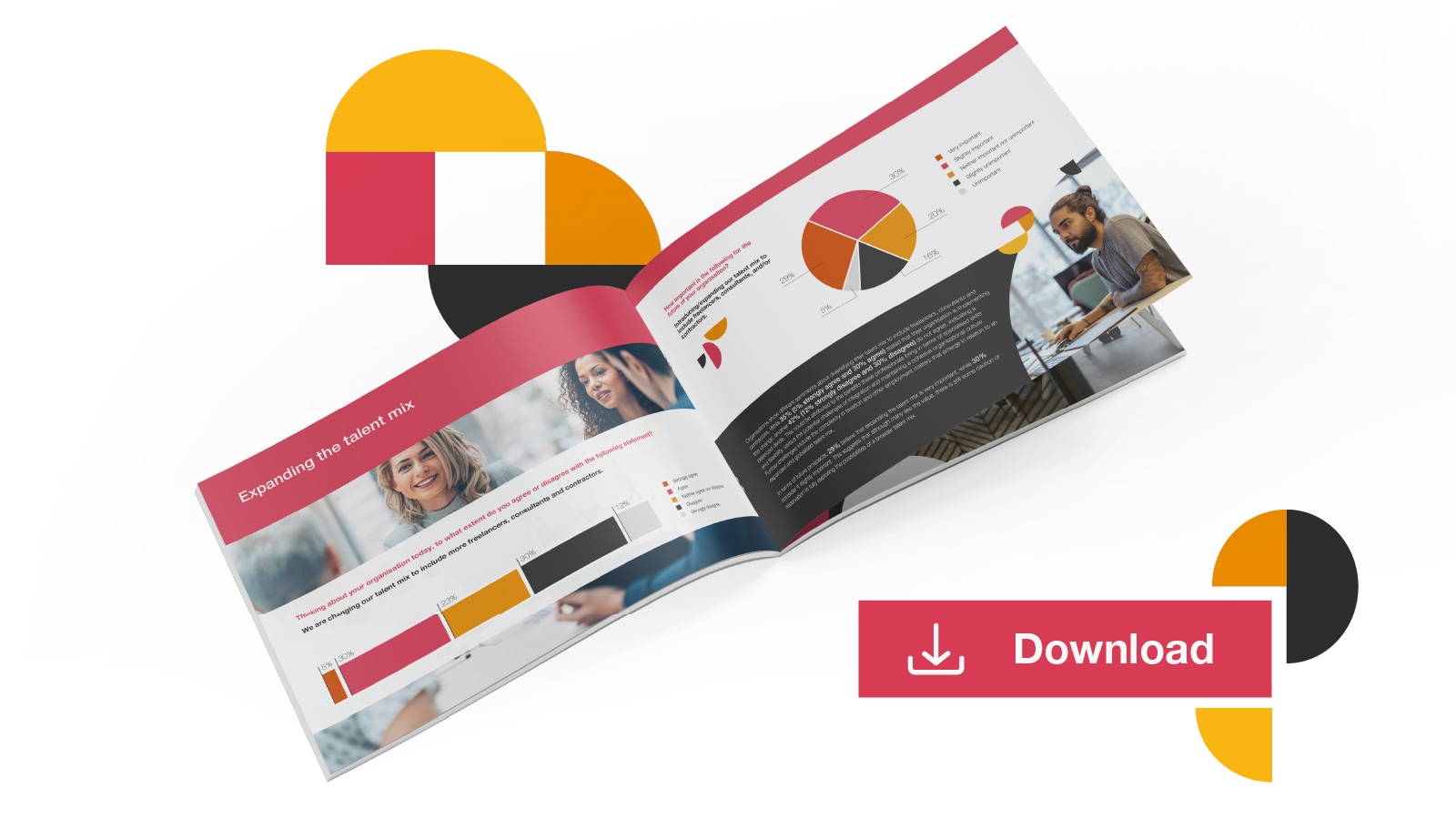This year’s ninth edition of the Malta HR Pulse Survey, a joint annual exercise carried out by PwC Malta and the Foundation for Human Resources Development (FHRD), focused on workforce planning for the future, learning 21st-century skills, the synergy between humans and technology, and the importance of inclusive and sustainable practices. The findings reveal emerging trends in the Maltese world of work, which when leveraged, may allow organisations to effectively address today's challenges and strategically plan for the future.
The survey expansively covered several crucial HR areas by inviting respondents to assess statements from two different lenses. Firstly, by thinking about their organisation today and responding based on the situation in their organisation in the present moment. Secondly, by assessing the same statement based on how important it is to the future of their organisation. The following is a condensed overview of the results, to view the full report please click Download now at the bottom of this page.
Workforce Planning and 21st Century Skills
Operating in a rapidly changing global environment necessitates proactive and visionary planning. In this regard, 54% of the organisations surveyed stated that they have adopted a scenario-based approach to planning for the future, positioning themselves to anticipate and manage uncertainties. When exploring the adoption of sophisticated workforce planning and predictive analytics, only 30% of respondents stated having these in place, with 54% considering this very important to the future of their organisation. Noteworthy is that 68% of respondents stated that they have workforce succession plans in place.
Furthermore, the focus on 21st-century skills such as leadership, creativity and empathy is evident. 80% of respondents indicated that their organisation not only recognises the importance of these skills but actively invests in promoting them, while 86% stated their commitment to nurturing re-skilling and continuous learning to help workers remain employable.

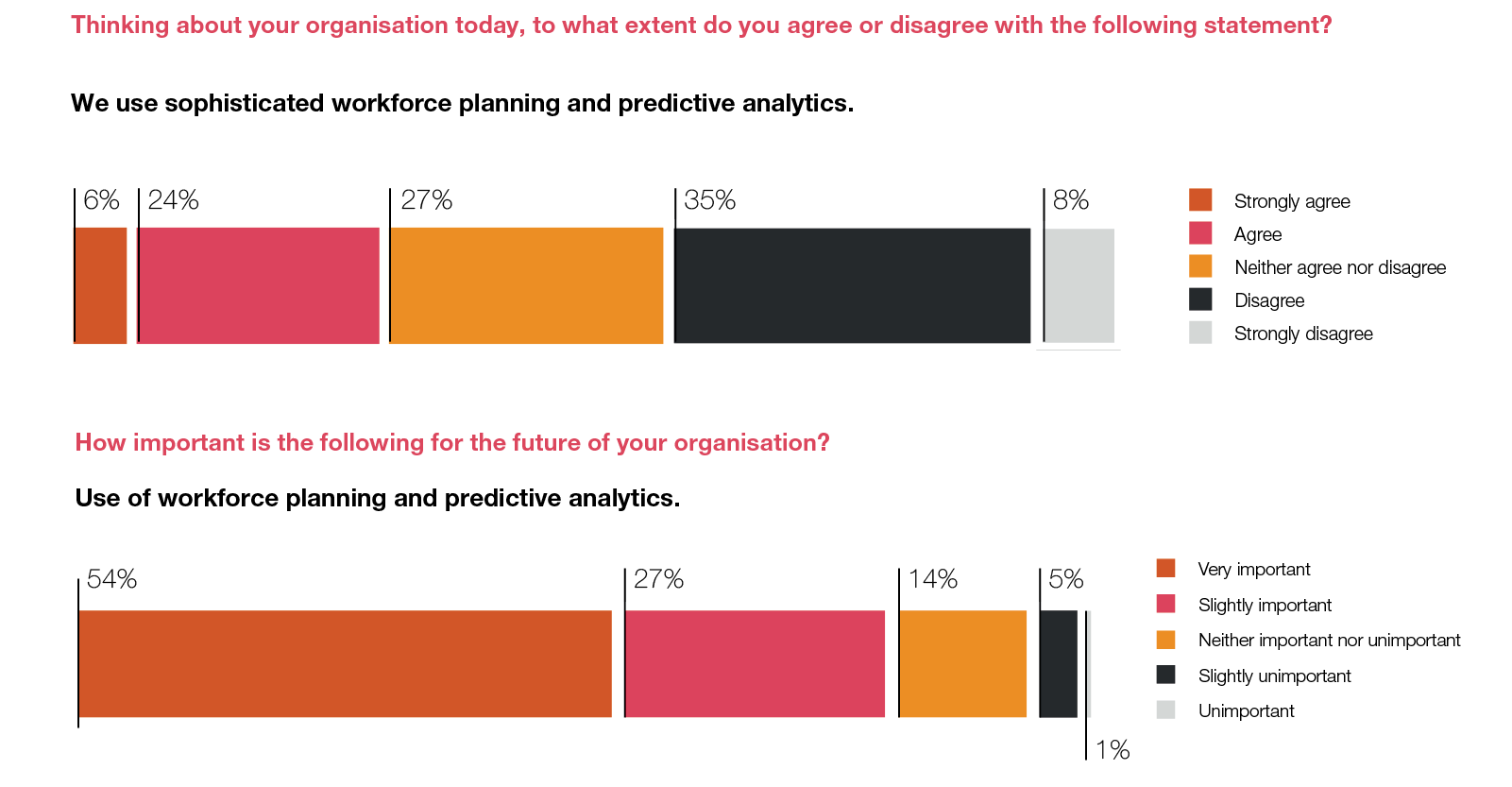
Advancements in Technology and the Talent Market
The growing integration of human intelligence and technology marks a crucial shift in organisational strategies. In this regard, 71% of respondents indicated that their organisation is carrying out steps related to the automation of repeated tasks. Furthermore, 70% stated that their organisations are actively identifying and building the future skills required by the impact of technology, though only 56% consider this very important for the future. This may reflect the cautious optimism surrounding the potential of AI. However, organisations are still grappling with some challenges, such as the integration of technological innovations with the skills and capabilities of the workforce. Only 43% stated that they are exploring the potential of AI in redefining roles.
Furthermore, 49% believe that their HR team has an in-depth understanding of technology. The survey further highlights the ongoing paradigm shift in talent acquisition and talent management. In total, 35% of respondents stated that they are diversifying their talent mix to include freelancers, consultants and contractors. Additionally, a striking 75% indicated that their sourcing and talent management strategies recognise the need to compete in a global talent market. The survey further explores transparency in compensation determination, the push towards a diverse talent pool and the increasing emphasis undergoing internal job evaluations, reflecting the changing priorities of HR professionals.
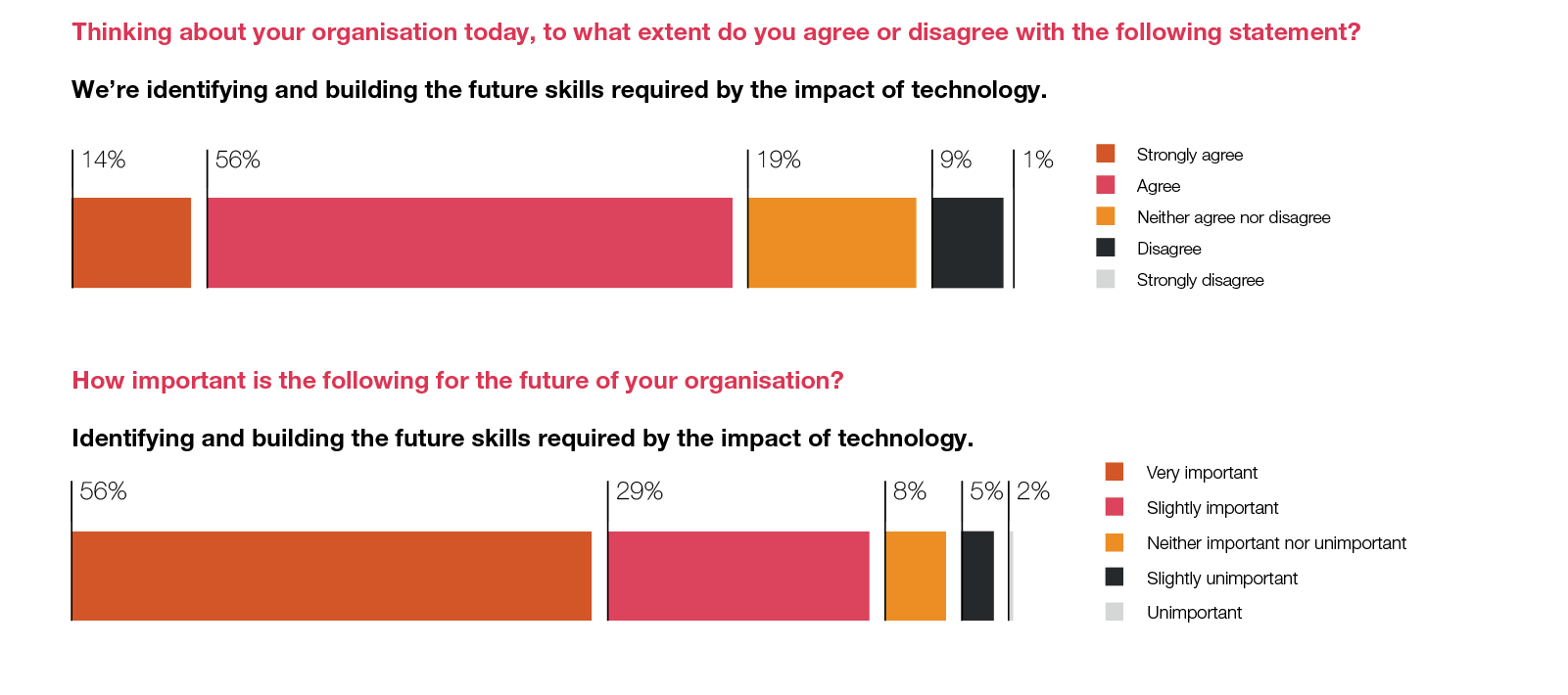

Inclusivity, Wellbeing, and a (Dis)Connected Workplace
Organisations are realising the benefits of fostering a diverse and inclusive environment. From the adaptation of hiring practices for neurodiverse candidates to well-being initiatives and policies, the push to embrace the entire talent spectrum is evident. Regarding inclusivity, 57% of respondents confirm initiatives within their organisations to recruit diverse staff, with a remarkable 81% seeing its future importance. Only 23% of organisations have non-traditional hiring assessments and training for people with disabilities, but an encouraging 62% of respondents emphasise its future importance.
Moreover, the emphasis on employee well-being has never been stronger. A significant 80% of respondents believe that their organisation currently has effective initiatives and policies in place to ensure mental and physical wellbeing, with 92% also considering this important for the future. Of those asked, 62% believe that the workload in their organisation is manageable to ensure that employees can use their vacation leave, and 93% emphasise the crucial importance of this for the future of their organisation.
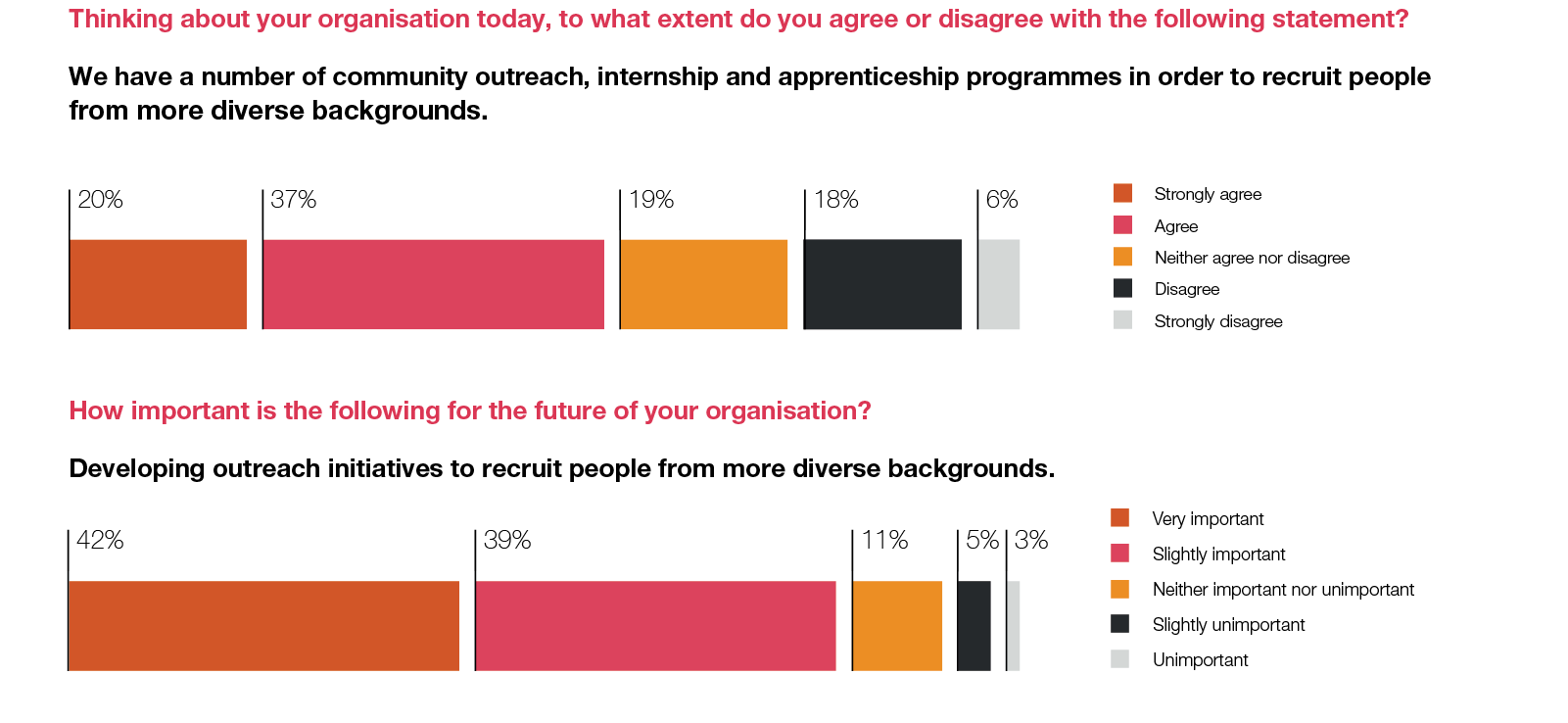
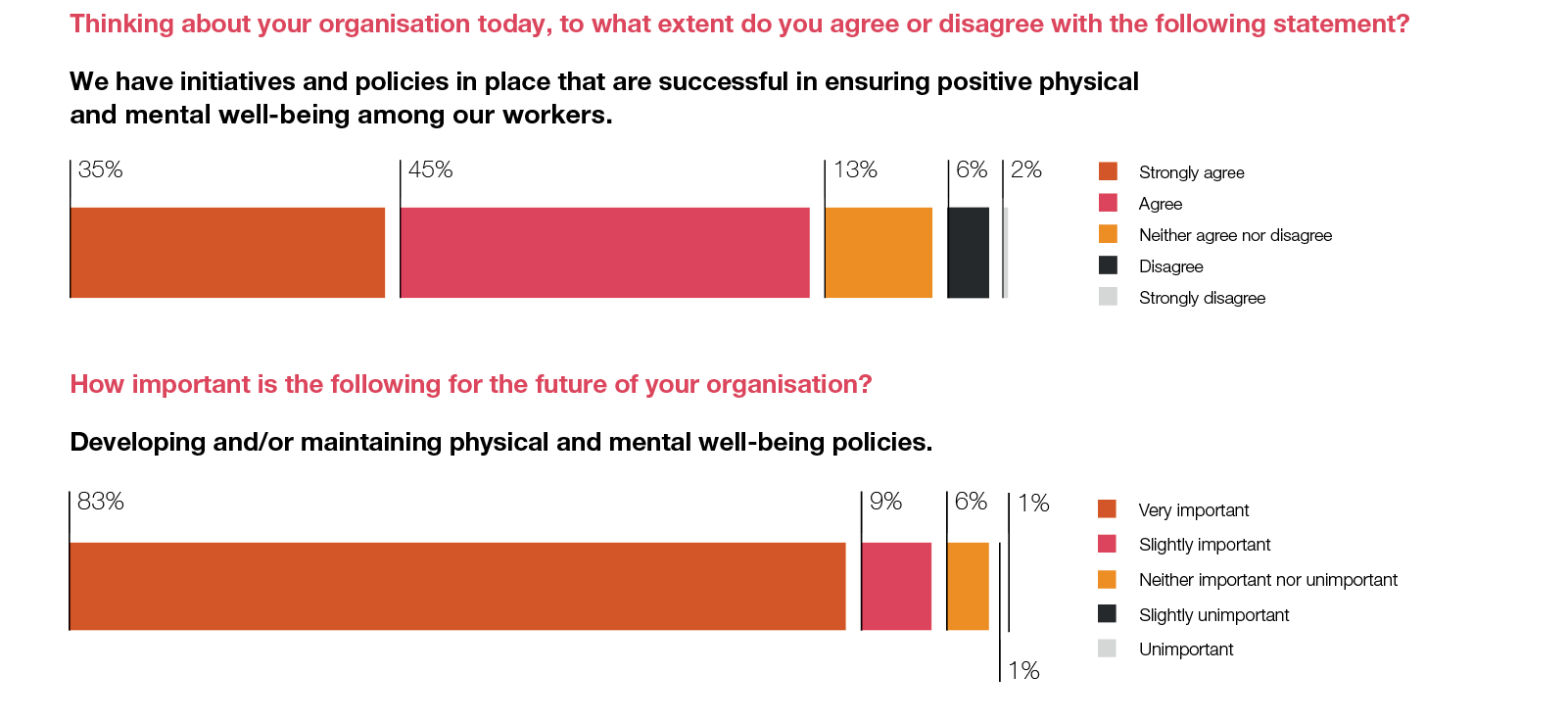
While 78% of respondents feel that their organisation understands the importance of employee disconnection outside working hours, 94% believe that it is important to create and maintain a culture where disconnection outside working hours is encouraged. In parallel, the drive towards more interconnected and flexible workplaces reflects the changing expectations of the modern workforce. As the pace of digital transformation intensifies, the need for technologically advanced and adaptable workplaces is clearer than ever. Indeed 64% believe that their organisation offers flexibility in working hours and locations, and 83% view its introduction as crucial. As remote work becomes a key characteristic of the world of work, 65% stated that their organisation supports remote work, with 81% expecting continued adoption of this moving forward. In this regard, 72% feel equipped with digital collaboration tools, but as many as 95% believe that their enhancement is essential for the future of their organisation.
The Future of Learning
The survey explores how learning has to adapt over time, with an emphasis on continuous learning, adaptability and the development of future-relevant skills. Competency framework/skills taxonomy is important with 61% of respondents stating that their learning and development is based on it. Looking forward, 86% consider it crucial to have such a framework in place. In total 74% stated that their organisation bases Learning & Development (L&D) at both an organisational and department level on a training needs assessment. Looking ahead, a striking 93% further stated that this is important to their organisation in the future.
A shift from standardised training to more personalised learning appears to have taken place, with 70% of the respondents stating that their organisation offers personalised learning plans. In terms of digital learning, only 52% of respondents stated that their L&D approach leverages technology, while 83% are currently considering the incorporation of technology such as VR, AR and AI to be crucial.
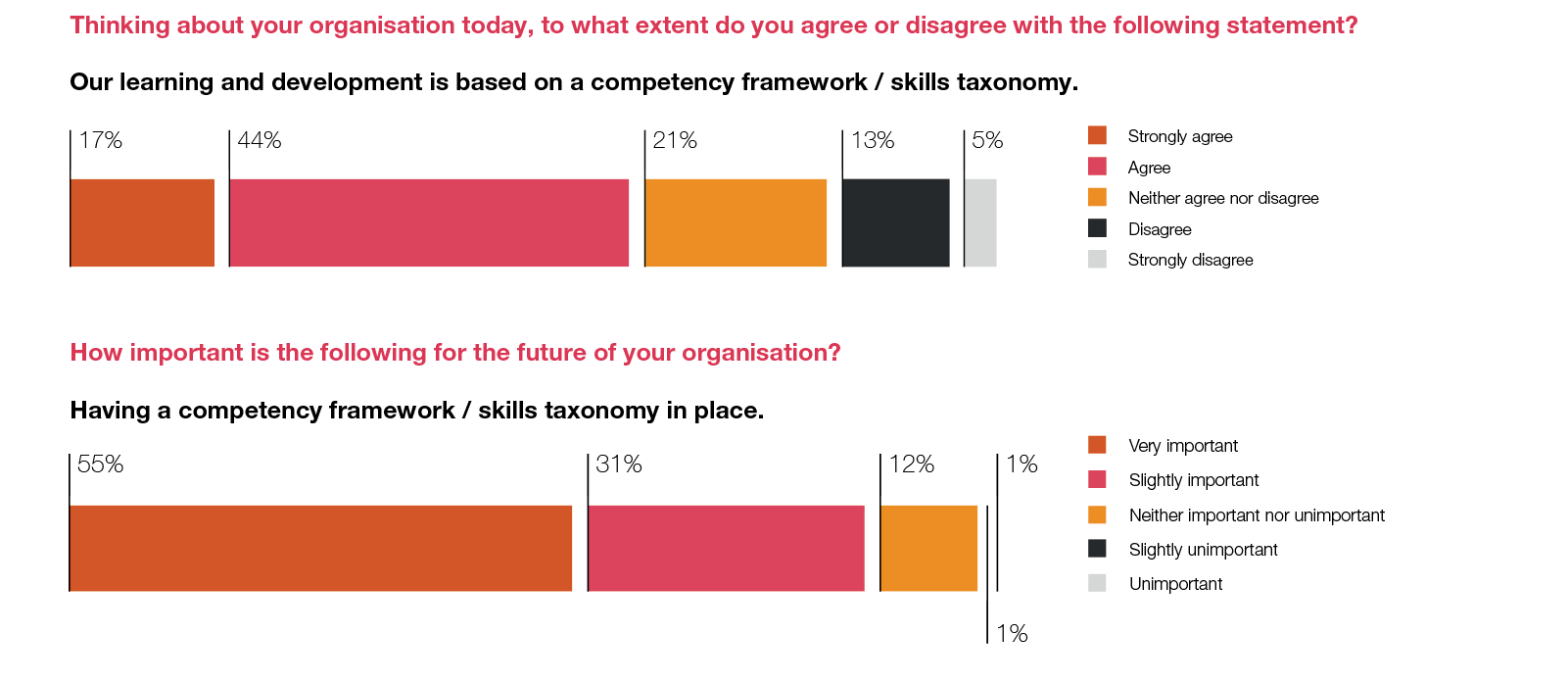
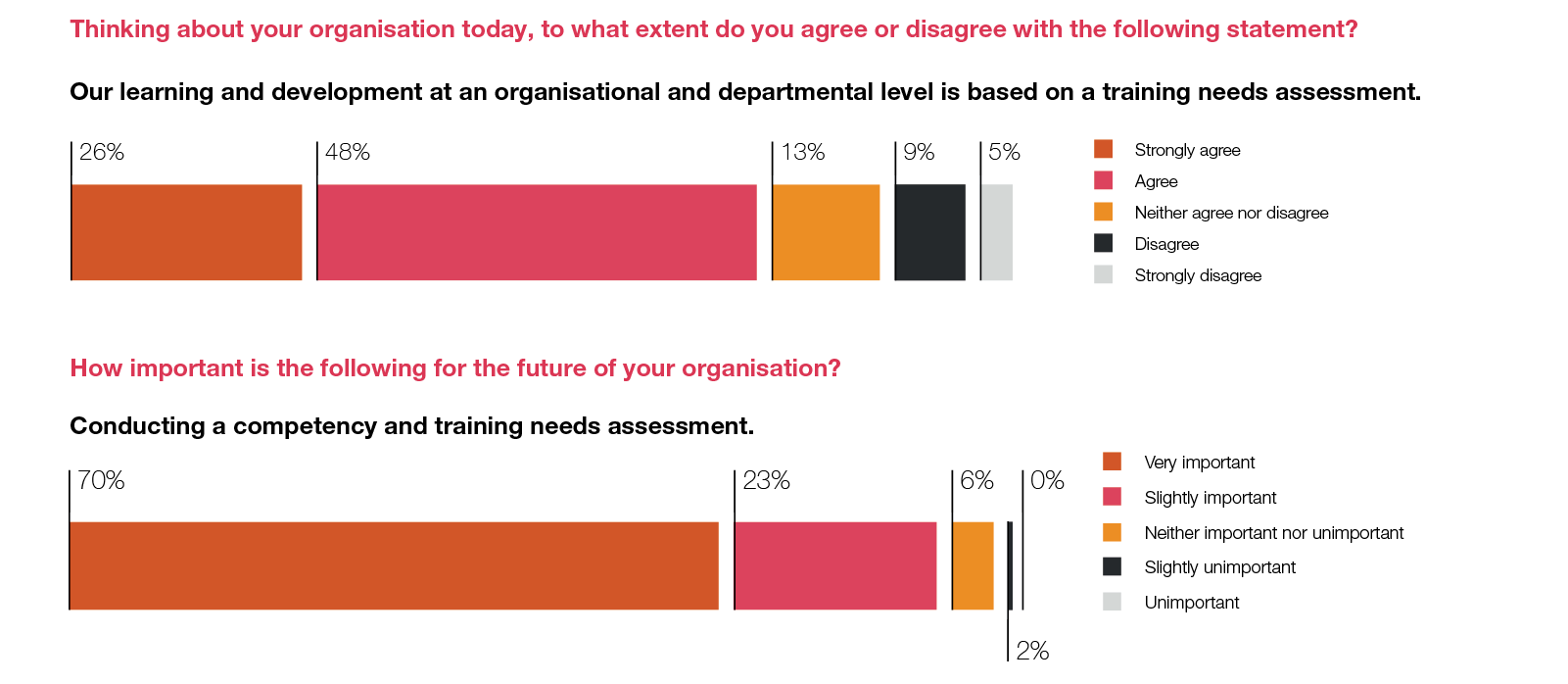
The Integration of Sustainability in Organisational Strategies
In a world increasingly conscious of environmental and social impacts, the focus on sustainability in organisational strategies is evident. In the area of sustainability, 62% of respondents indicated that ESG (Environmental, Social, Governance) principles are incorporated into their organisation's purpose. Furthermore, 83% believe that the integration of ESG principles is essential for the future of their organisation. Regarding people sustainability strategies, 48% confirm this to be in place within the workplace. However, 86% emphasise the need for such strategies to be developed further.
One noteworthy point is awareness of upcoming regulations, in which 45% of respondents are confident that their HR teams are familiar with the European Corporate Sustainability Reporting Directive (CSRD) and its implications. However, a significant 83% consider becoming more familiar with this knowledge as crucial, indicating the pressing need for HR teams to align with evolving sustainability standards. Interestingly, only 30% of participants believe that executive pay in their organisations is linked to ESG objectives. However, a strong 73% believe that this link is crucial in the future, indicating a potential trend whereby organisations could prioritise ESG-oriented remuneration strategies.
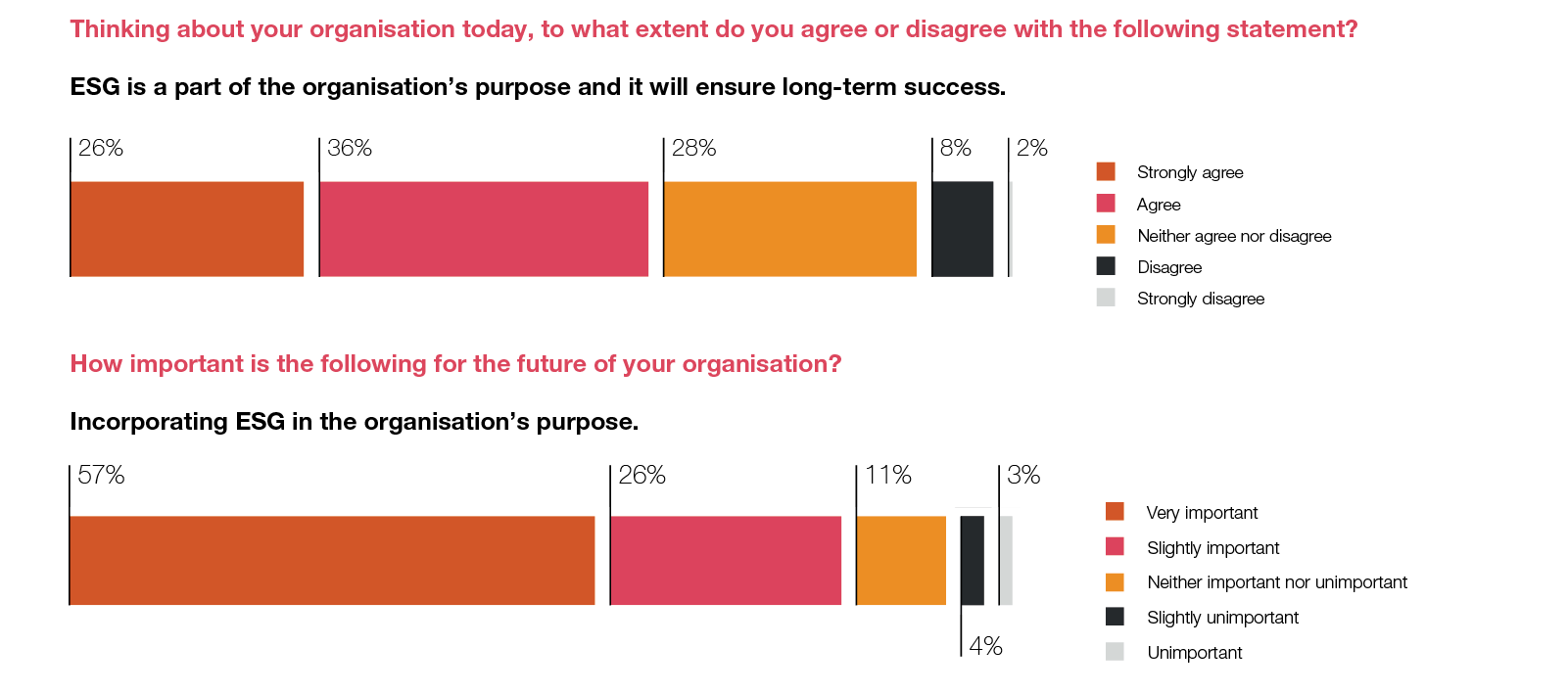
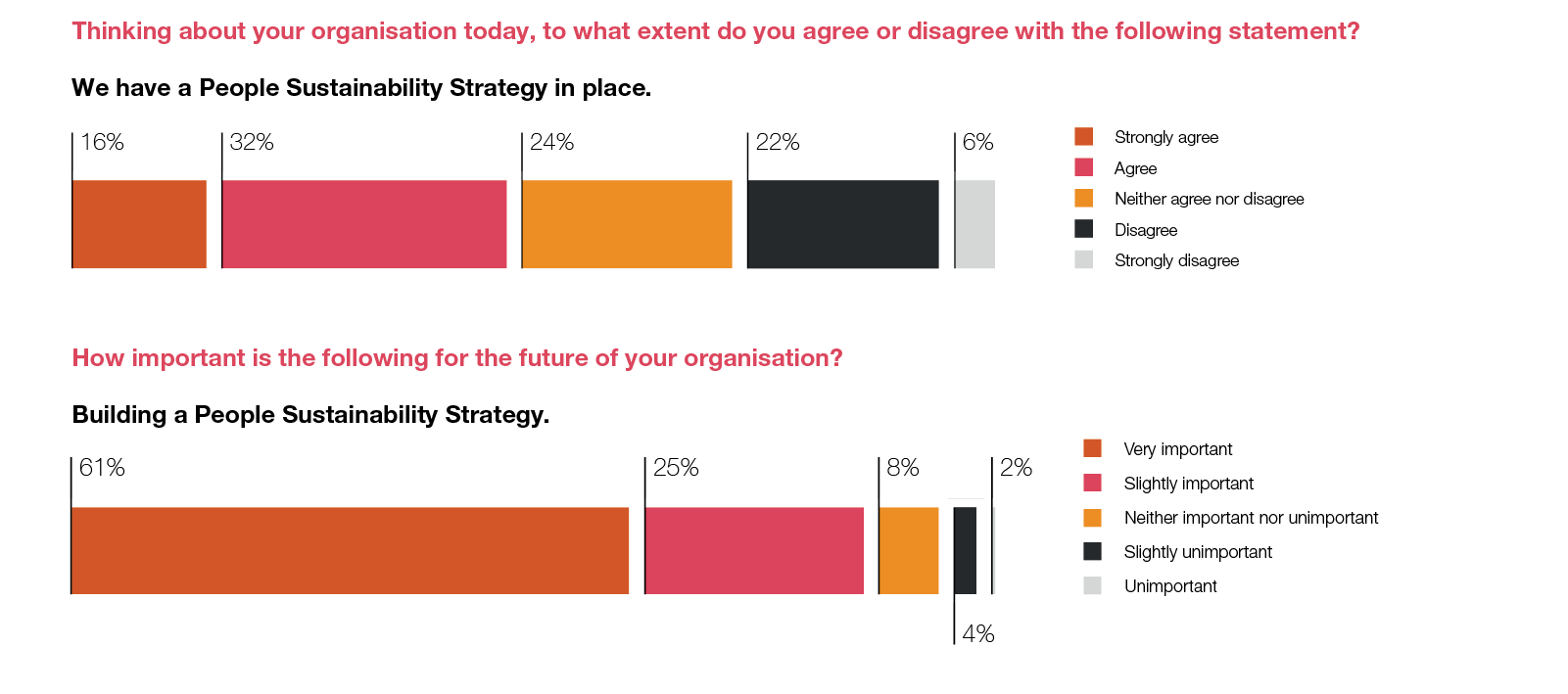
Conclusion
Collected from a diverse group of 109 participants, mainly from senior HR positions, the survey offers a comprehensive view of the current HR landscape in Malta. Organisations are facing a dynamic HR environment, with market changes and evolving employee and business needs. The HR Pulse survey highlights both challenges and opportunities. As sustainability and technology integration become central, HR must not only adapt but also anticipate future trends. The strategic role of HR in innovation and culture is undeniable and requires investment and upskilling. The findings highlight the fine balance between contemporary HR practices and future ambitions. They encourage organisations to be agile and forward-looking in their strategies, ensuring that they remain aligned with changes and are well-positioned for the challenges and opportunities that the future holds.
Download the full 2023 HR Pulse Survey Report
Get in touch with us should you wish to discuss any components of the report










